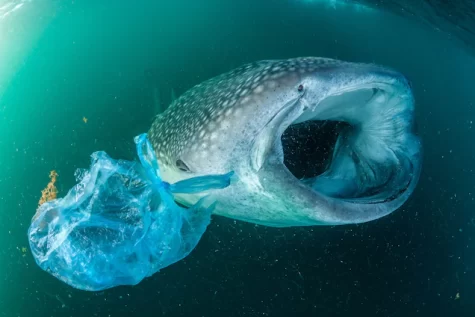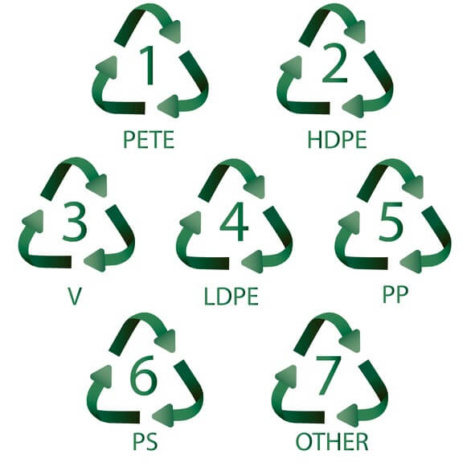
Avery Kearl | Writer
October 28, 2022
Waste pollutes our earth’s oceans and air, with plastic as a large contributor. Americans may try to prevent this pollution by recycling, but, unfortunately, recycling is rare. An article from CBS NEWS reveals “[A] study found that of 51 million tons of plastic waste generated by U.S. households in 2021, only 2.4 million tons were recycled, or around five percent.” More concerningly, plastic produced is expected to triple by 2050, dropping the percentage of recycled plastic even lower.
The nation’s 375 recycling facilities mostly only accept 2 kinds of plastics: polyethylene terephthalate and high-density polyethylene. The rest are put in landfills. “A number scale is used to show the level of difficulty the different plastics are to recycle,” sophomore Elijah Wilson explains. According to the standardized system, the accepted plastics are numbers 1 and 2 out of the 7 types of plastic. Plastics 3 through 7 are commonly found in everyday items such as plastic bags, shower curtains, clear food wraps, and to-go cups. The plastic industry is able to make their consumers view them as less destructive towards the environment by labeling plastic recyclable except that’s a “failed concept”.

The once hopeful solution to save our planet is now a large contributor to the problem. This is because of a few main reasons. Firstly, It’s extremely difficult for trash to be collected when there are millions of tons. Secondly, many Americans don’t proactively sort their trash, making it difficult for the waste to be sorted. A survey of over 100 students taken at San Clemente High School revealed that only 77% of families recycle. Thirdly, the actual process is expensive and generates microplastics, exposing workers to harmful chemicals.
States like California, Delaware, Connecticut, Maine, Hawaii, Oregon, New York, and Vermont have all started selling single-use plastic bags instead of giving them to customers for free with the purchase of groceries in order to stop the extreme quantities of single-use plastic. This is one step towards a cleaner future. Sophomore Ethan Kim urges his peers to make a difference, “Recycling is critical right now because if we don’t make progress we will be living in an area full of garbage and we wouldn’t breathe clean air. It’s common sense.”

Leave a Reply